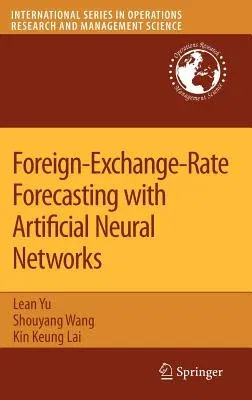Lean Yu
(Author)Foreign-Exchange-Rate Forecasting with Artificial Neural Networks (2007)Hardcover - 2007, 2 August 2007

Qty
1
Turbo
Ships in 2 - 3 days
In Stock
Free Delivery
Cash on Delivery
15 Days
Free Returns
Secure Checkout

Part of Series
International Operations Research & Management Science
Part of Series
International Series in Operations Research & Management Science
Print Length
316 pages
Language
English
Publisher
Springer
Date Published
2 Aug 2007
ISBN-10
0387717196
ISBN-13
9780387717197
Description
Product Details
Book Edition:
2007
Book Format:
Hardcover
Country of Origin:
US
Date Published:
2 August 2007
Dimensions:
23.62 x
15.49 x
2.29 cm
ISBN-10:
0387717196
ISBN-13:
9780387717197
Language:
English
Location:
New York, NY
Pages:
316
Publisher:
Series:
Weight:
657.71 gm